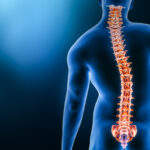A recent breakthrough by a research consortium led by Nestlé Research in Switzerland and the Yong Loo Lin School of Medicine at the National University of Singapore (NUS Medicine) has uncovered that trigonelline, a natural molecule found in coffee, fenugreek, and also within the human body, may significantly enhance muscle health and function. This discovery was part of an extensive international collaboration involving the University of Southampton, University of Melbourne, University of Tehran, University of South Alabama, University of Toyama, and University of Copenhagen, building upon earlier collaborative research which uncovered new mechanisms of human sarcopenia.
Sarcopenia is a condition characterised by age-related cellular changes progressively weakening muscles, leading to a rapid decline in muscle mass and strength and diminishing physical independence. A critical issue during sarcopenia is the reduction of the cellular cofactor NAD+ with age, coupled with decreased energy production by mitochondria, the energy powerhouses of our cells. The research identified that older individuals with sarcopenia have lower levels of trigonelline. In pre-clinical models, administering this molecule resulted in heightened NAD+ levels, enhanced mitochondrial activity, and helped maintain muscle function as ageing progressed.
NAD+ levels can be boosted through various dietary precursors such as the essential amino acid L-tryptophan (L-Trp), and forms of vitamin B3 including nicotinic acid (NA), nicotinamide (NAM), nicotinamide riboside (NR), and nicotinamide mononucleotide (NMN).
Assistant Professor Vincenzo Sorrentino, from the Healthy Longevity Translational Research Programme at NUS Medicine, commented on the findings: “Our findings broaden the existing knowledge of NAD+ metabolism through the identification of trigonelline as a novel precursor of NAD+, enhancing the prospects for developing interventions that utilise NAD+-producing vitamins for both promoting healthy longevity and tackling age-associated diseases.”
Both nutrition and physical activity play vital roles in maintaining muscle health during ageing. Jerome Feige, Head of the Physical Health department at Nestlé Research, expressed enthusiasm about the implications of their research: “We were thrilled to find through our collaborative efforts that a naturally occurring molecule in food can interact with cellular age markers. The impact of trigonelline on cellular metabolism and muscle health as we age offers exciting prospects for practical applications in the field.”
More information: Mathieu Membrez et al, Trigonelline is an NAD+ precursor that improves muscle function during ageing and is reduced in human sarcopenia, Nature Metabolism. DOI: 10.1038/s42255-024-00997-x
Journal information: Nature Metabolism Provided by NUS Yong Loo Lin School of Medicine








